The 30th annual UN climate talks have ended, with a last minute grasp at forest action and fumble on a fossil fuel phaseout.
The final agreement
The first week of the climate talks in the Amazon showed cautious optimism with proposed plans of forward motion on a fossil fuel phase out and forest protection.
At the halfway point, civil society turned out with Indigenous Peoples and allies to march in the streets of Belém, demanding change and calling on their governments to step up climate ambition during the final week of negotiations.
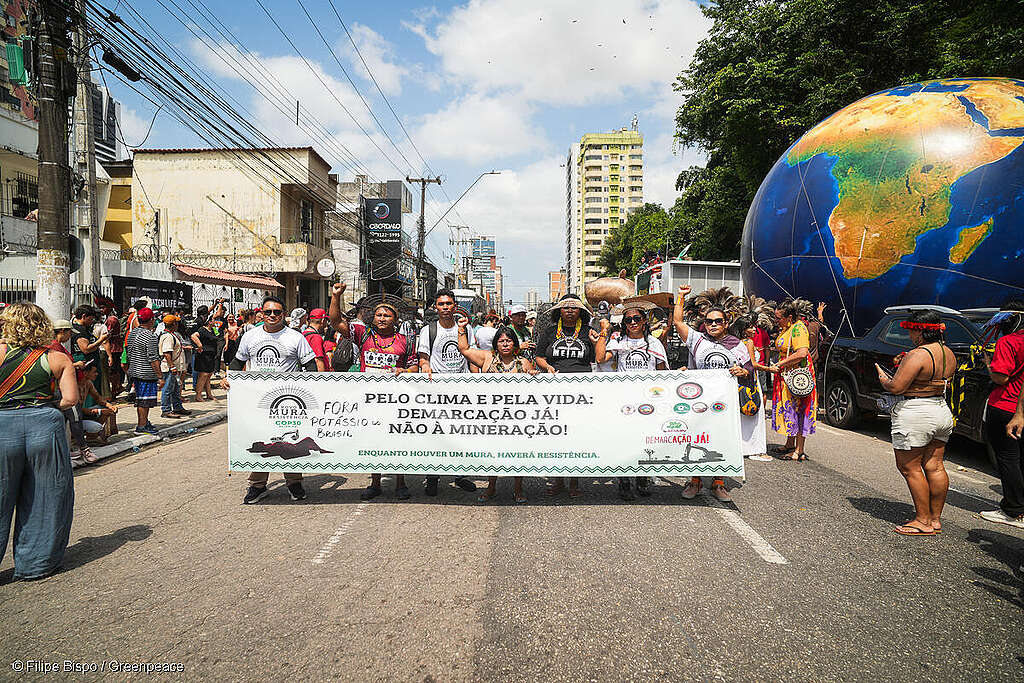
But the passion people showed on the streets did not translate into courage in the hallways of the negotiations. The first COP in the Amazon rainforest was long awaited as a turning point, to deliver an action plan to end forest destruction by 2030 and a Global Response Plan to address the 1.5°C ambition gap. But, despite an objection raised during the final plenary by Colombia and other Latin American countries over a lack of progress in climate mitigation, the final agreement produced neither result and did little to advance climate finance overall or push developed countries to commit public funding for the years ahead.
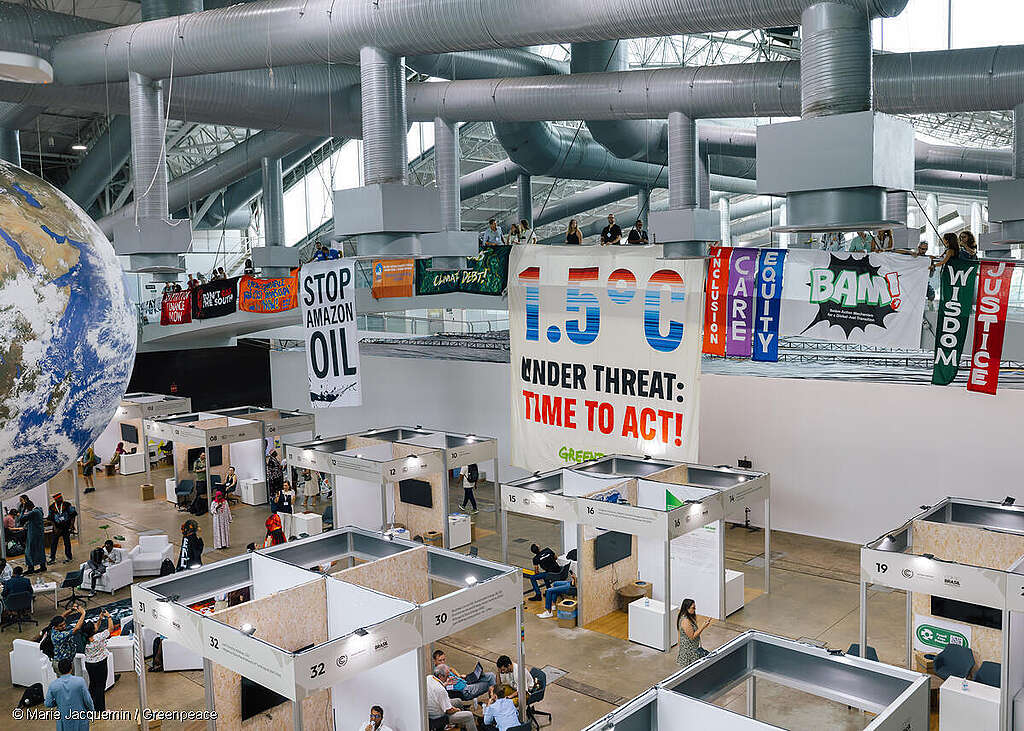
What started with strong hope and promise ended without any actionable roadmaps to end forest destruction and the burning of fossil fuels. Geopolitical divisions and the interests of billionaires, climate polluters and nature destroyers again spoke louder than the thousands of people calling for action in the streets of Belém.
Resist. Rise. Renew.
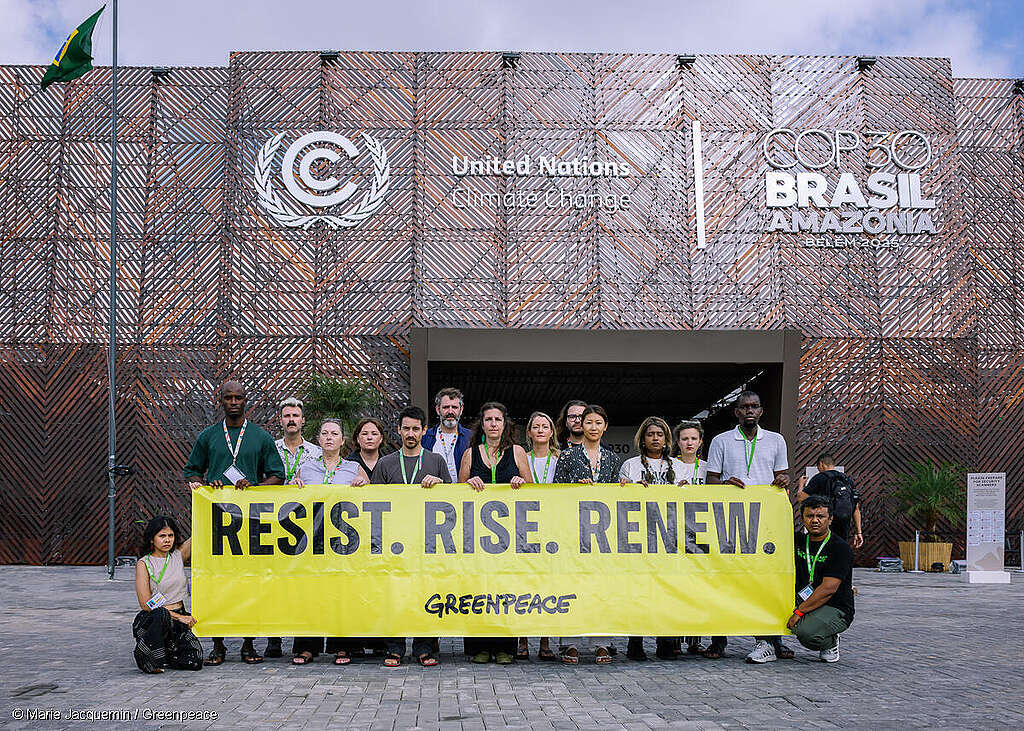
After three years in a row of having to navigate tight guidelines for peaceful protest and action at COPs, people power in Belém met the moment. From creative art performances to marches, civil society relentlessly made its presence felt both inside and outside of the COP venue.
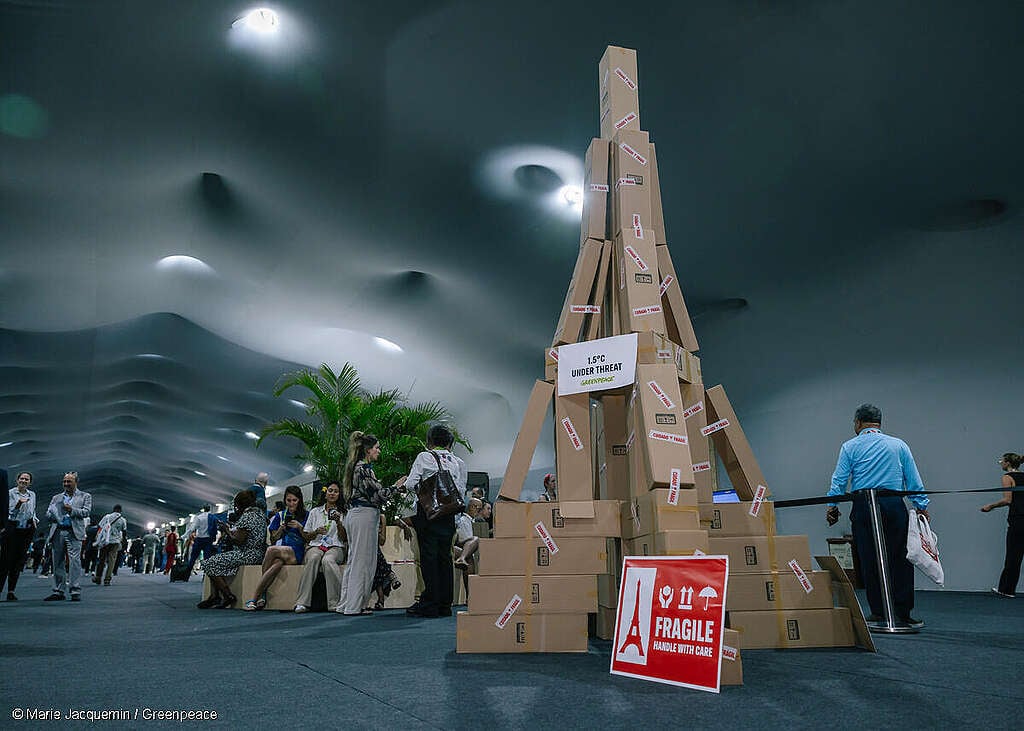
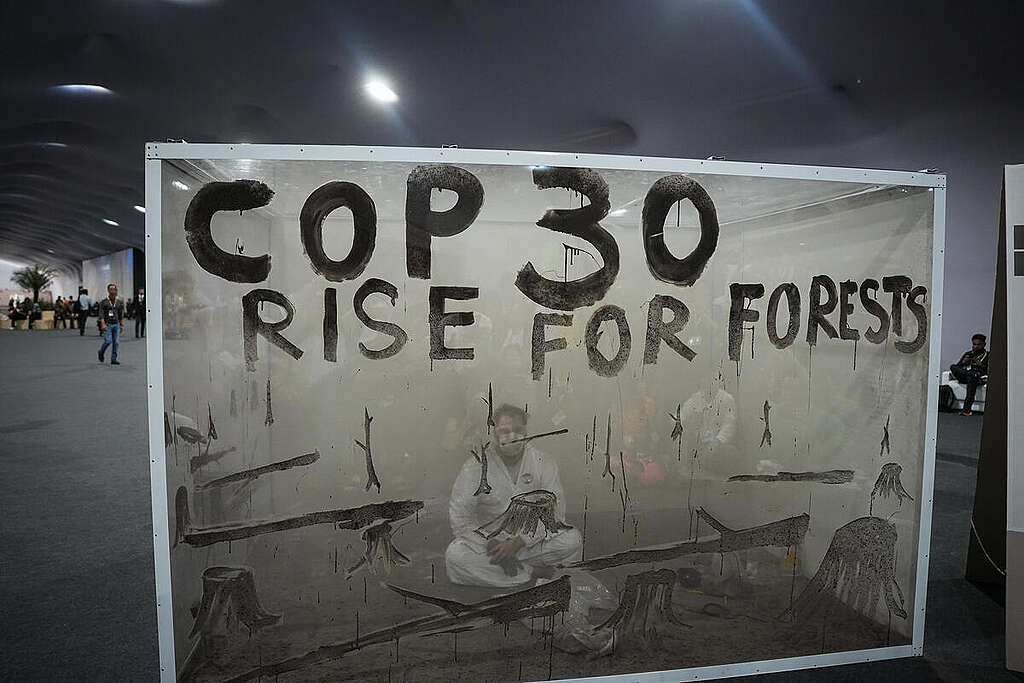
What comes next for climate action
After a dramatic pull and tug, COP31 next year will be in Turkey in the coastal city of Antalya, and share the presidency with Australia.
COP30 set a high bar, only to disappoint in the end, but the weak outcome does not do justice to the full story of what happened in Belém: the biggest Indigenous participation at a climate COP and the powerful protests organised by civil society, demanding action for people and planet that will persist until climate justice is delivered.
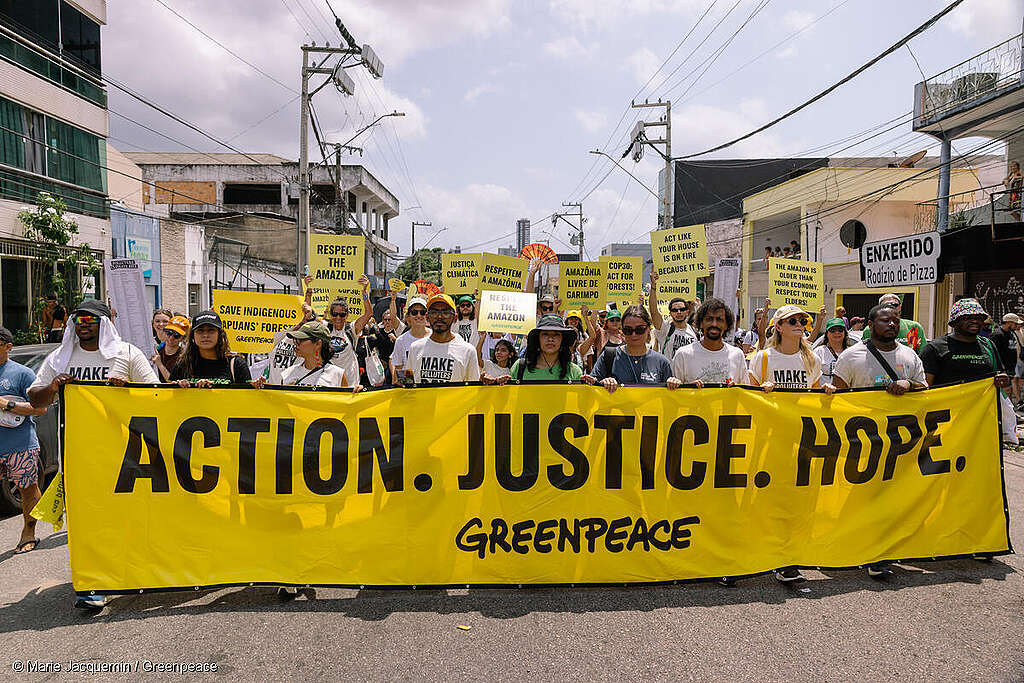
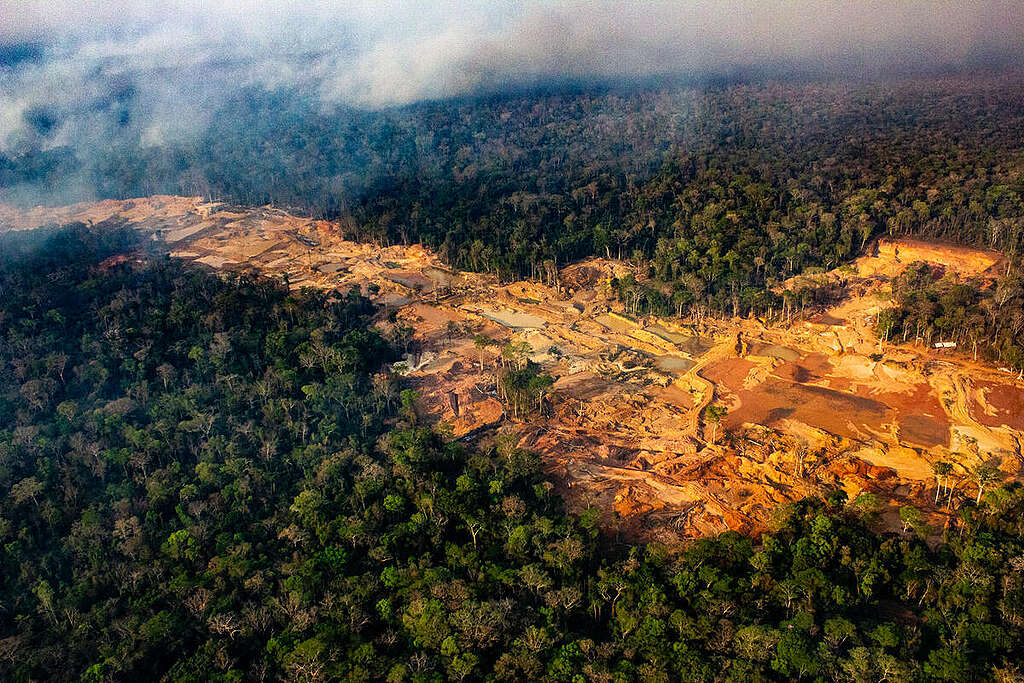
Ask political leaders to act on their promises to stop Amazon destruction.
Join the movement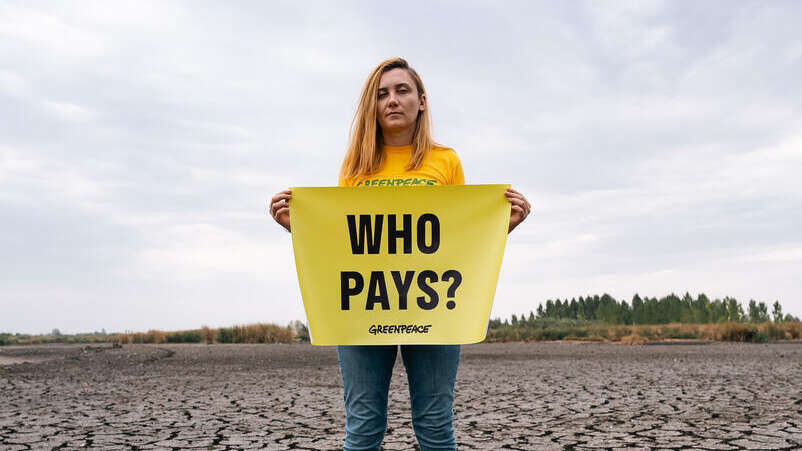
Sign the pact, record your story. Join the global movement to make polluters pay.
Join the movement

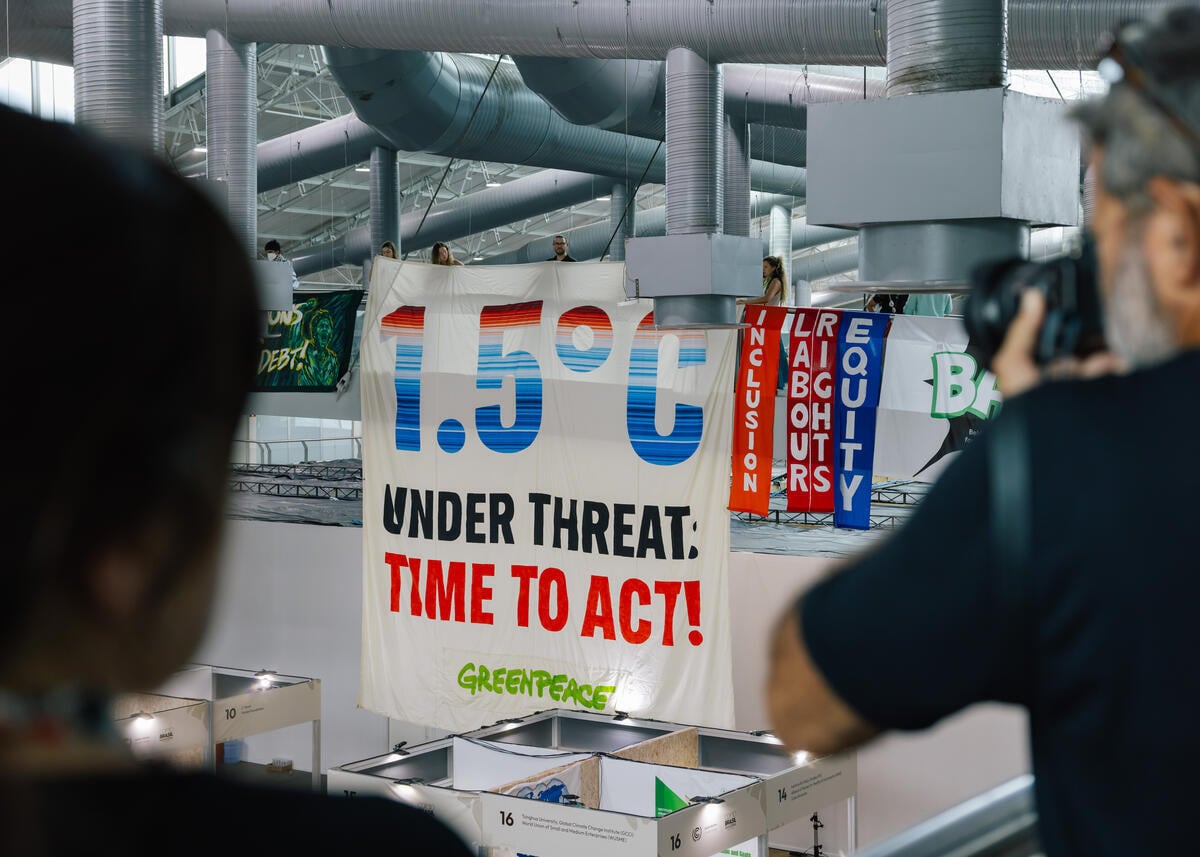
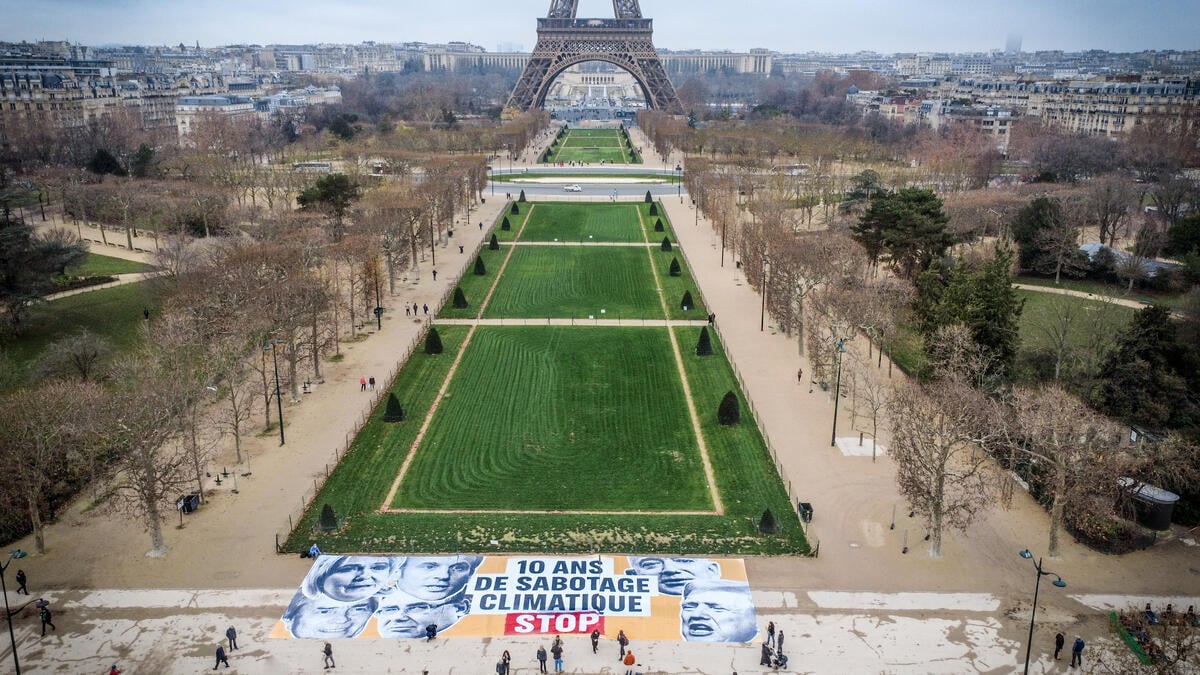
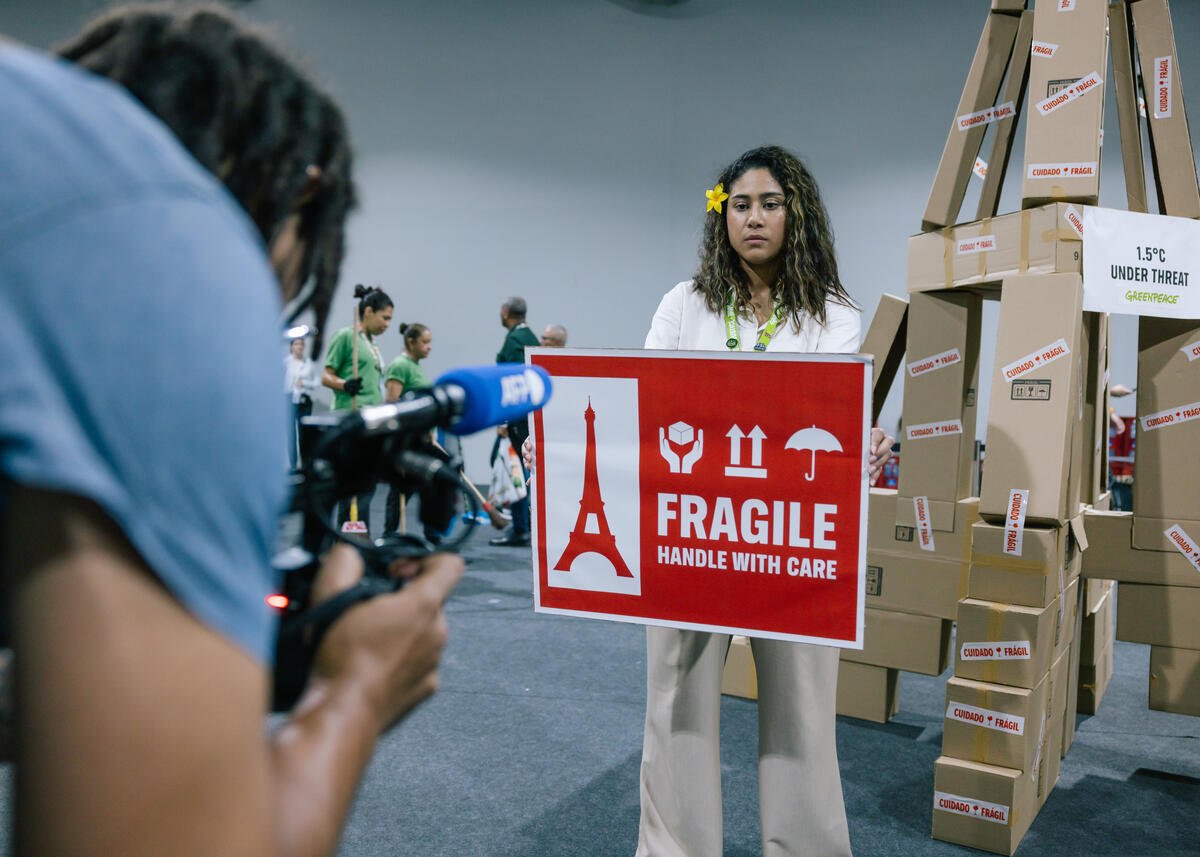
Discussion
Save our earth for future generations.
Tetap berjuang sampai titik darah penhabisan
though Bangladesh i's not your campaign partner but I Mohammed Elias Serazi always with GREENPEACE INTERNATIONAL.all the best.
Me and my family are with every move if Greenpeace. Unity of the Greenpeace army can make the world pay back to the green.
I admire and respect your courage and bravery and your perseverance. Sometimes what is happening in the world to our earth 🌎 is overwhelming then I get an email from Greenpeace and I am uplifted and have hope.
The world 🌍 leaders should be able to put an end to fossil fuel pollution beyond mere talk and indecision on human rights to good health, wellness and climate education, from the conference room to the rural communities.
I still cannot believe that the 'powers to be' of those involved in dealing with the climate problem the entire world is going through do not seem to realise that less trees means more damage to our now fragile planet ! Surely everyone should know that trees give us oxygen and absorb carbon dioxide so the more the amazon forest is destroyed the more our planet will suffer Have to ask the question what part of we are rapidly putting the entire planet in danger do 'they' not understand ?! As for so called net zero....this just does not exist.... it is a big 'con' for countries to take more money from us to line their own pockets ....these people need to wake up and join the rest of us in the 'real' world !!
When corporate wealth excedes that of nations, individual billionaires compete tro be the first trillionaire while their workforces lack representation, the climate crisis increases, environments destroyed in the name of progress while the planet as a whole suffers and the billionaires dream of colonising other planets. We have allowed the lunatics to takeover, the politicians paid to represent us continually fail funded by donations and career opportunities while the planet burns and the abused workers are expected to pay through the taxes they pay and the billionaires avoid or politicians exempt them from paying.
we must keep fighting more than ever and not let hope become trampled underfoot
Very frustrating outcome from Belem, but let's keep hope alive, we shall overcome one day. Our planet will be Green again.
Sadly I am not surprised by the pathetic lack of true commitment to the environmemt shown by all the world leaders. every time COP comes around I have no optimism. I expect it to be full of broken promises and no progress! the most significant issue for every nation should be climate change and investment in a new greener future, circular economies and limiting the gross excess energy usage of so called "developed" nations who feed greed through neo-liberal capitalism. I live in a town on the east coast of England predicted to disappear under rising sea levels, certainly in the lifetime of my children and grandchildren. Those in power should hang their heads in shame.
The time is NOW. Global warming crisis is a crime, Big oli, and others are killing everyone in our only planet and we have the right to to protest, those criminals must be held accountable for their mass murdering
I feel sick that from what I see, my grandchildren and great-grandson will have the same (worse?) problems of climate change when they are growing up, because of the inaction of greedy politicians.
The next COP in Turkey ( sorry, American phone and spelling - you would think Google would have the money to have a proper system - alas a money hungry [person] at the helm, doesn't help ), - must NOT have any fossil fuel representatives at all - after all - it is an environment and climate gathering, mainly dealing with those orgs that are continuing to cause and EXACERBATE the problems. !!!! It has become an absolute joke. Australia's component needs to step up, particularly for the South Pacific nations.
I expected the COP30 to be like this because the pressure on greed is increasing despite the opposition. All people can do is be responsible themselves and gradually things will change because the environment will change and is already doing so. All we can hope is that it won't be too late!
The people have the power. Bring on their force.
Time all rivers and trees were accorded legal rights and polluters and destroyers faced court actions.
I was impressed to see Indigenous Papuans represented. I read an article in the "Geographical" magazine, November issue about the huge mine that is devastating the environment in West Papua, and where Western pension funds and banks are heavily involved. One of those pension funds was sold to me as environmentally friendly after I asked the broker specifically for an annuity that is ethical.
An idea What if every concerned person in the world rented a tiny part of the various forests. For instance the units might cost only £50 and be very small but each person would then be MH along a real and potentially ongoing commitment. If a billion people paid £50 per year this could pay the host countries who own the forest to preserve them and would give them an annual income. There should be no lock in commitment so people don’t feel trapped to give their donations but my guess is you would have a huge response. Donors feel good, they feel effective and empowered to help, they see the results and the forests are saved. Suggest sending each donor aerial photos of the section of forest they are contributing to each year do they can see and monitor for themselves that it’s ok. Any comments ?
We are fighting for justice and social cause to clean the environment. It is very hard to stop the rat race towards the hunt of energy. We ask the Govt. to search for alternative route without harming the nature and climate. Let us hope for the best.
I’m with you